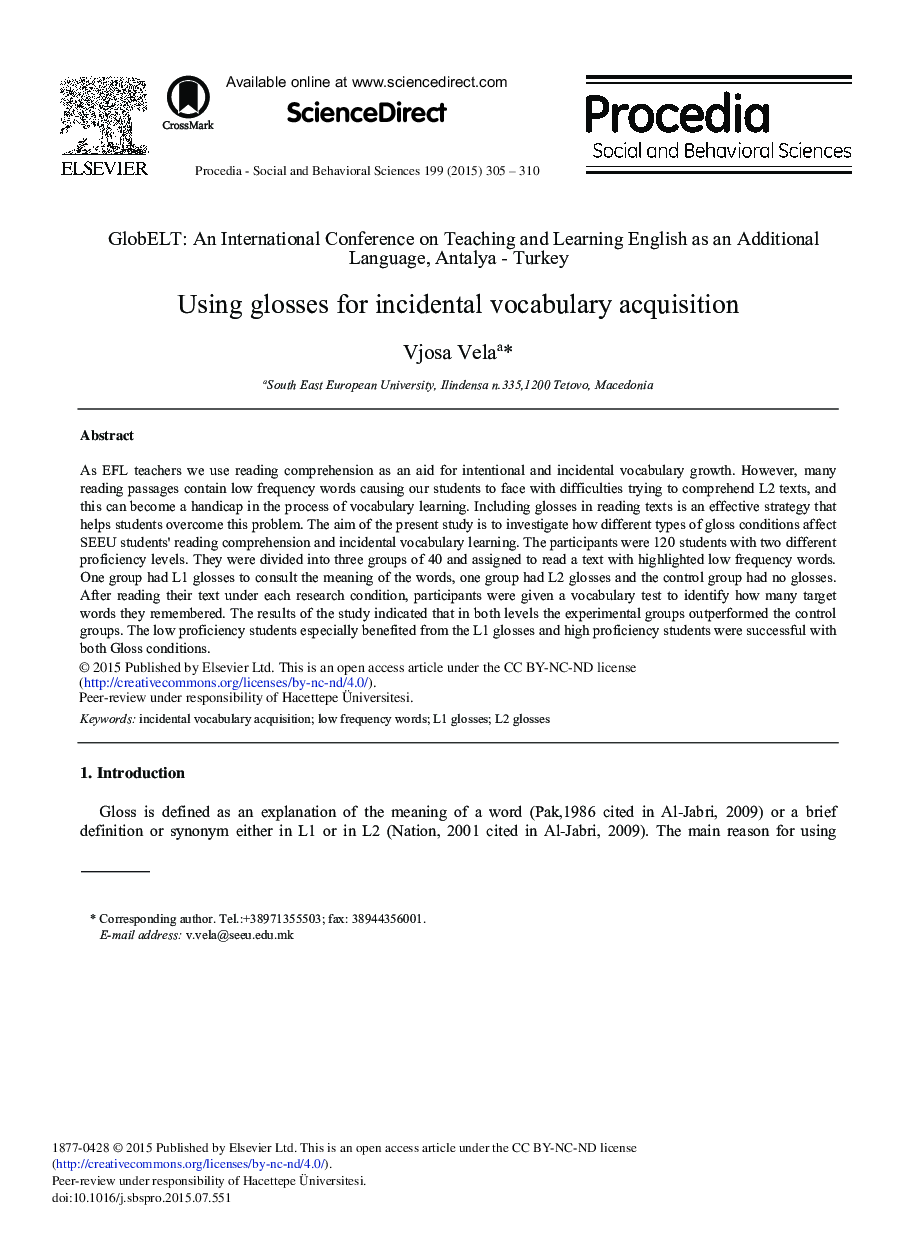| Article ID | Journal | Published Year | Pages | File Type |
|---|---|---|---|---|
| 1109790 | Procedia - Social and Behavioral Sciences | 2015 | 6 Pages |
As EFL teachers we use reading comprehension as an aid for intentional and incidental vocabulary growth. However, many reading passages contain low frequency words causing our students to face with difficulties trying to comprehend L2 texts, and this can become a handicap in the process of vocabulary learning. Including glosses in reading texts is an effective strategy that helps students overcome this problem. The aim of the present study is to investigate how different types of gloss conditions affect SEEU students’ reading comprehension and incidental vocabulary learning. The participants were 120 students with two different proficiency levels. They were divided into three groups of 40 and assigned to read a text with highlighted low frequency words. One group had L1 glosses to consult the meaning of the words, one group had L2 glosses and the control group had no glosses. After reading their text under each research condition, participants were given a vocabulary test to identify how many target words they remembered. The results of the study indicated that in both levels the experimental groups outperformed the control groups. The low proficiency students especially benefited from the L1 glosses and high proficiency students were successful with both Gloss conditions.
